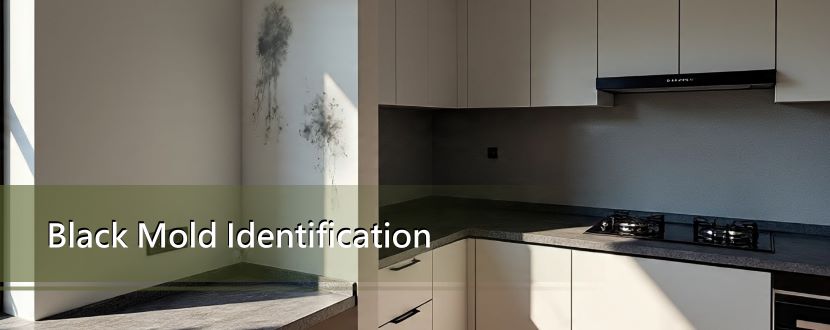Who Does Black Mold Identification Services SC

How to Identify Black Mold in SC
Black mold in South Carolina homes can sneak up quietly, especially in areas with high humidity like Charleston, Myrtle Beach, or Columbia. I’ve seen it hide in basements, crawl spaces, behind kitchen cabinets, and under old carpeting. SC’s hot summers and sudden storms make any home prone to hidden mold, so knowing who can correctly identify black mold is crucial to protect your property and health. If you’re concerned, our mold inspection South Carolina services can help.
Certified Mold Tester SC and Mold Inspection South Carolina
The tricky thing about black mold is that it doesn’t always show itself immediately. You might notice a damp, musty odor, discoloration around windows, or peeling wallpaper. In Charleston SC’s historic homes, mold sometimes develops behind wood paneling for years before anyone notices. I’ve even seen mold in Myrtle Beach, SC, condos hidden under wet carpeting from a prior storm flood. Mistaking it for dirt or mildew is common, which is why certified professionals are so important. If you’re worried about potential hazards, it can be useful to combine mold testing with asbestos inspection services in South Carolina for older SC properties.
SC Mold Testing Services and Local Experts
If you suspect black mold in your home, your safest bet is to hire a certified mold tester SC. Professionals in South Carolina, especially in cities like Greenville SC, Columbia SC, or Spartanburg SC, often carry IICRC or AIHA certifications. These credentials mean they know how to perform home mold detection SC, test air quality, identify specific mold types, and locate hidden infestations that homeowners might never notice. For added safety, you can also consider lead testing SC if your home was built before 1978, since older paint may contribute to indoor air hazards.
What a Mold Inspection in South Carolina Usually Includes
- Visual walkthrough to spot visible mold or water damage
- Air and surface sampling to confirm mold presence
- Moisture mapping, particularly around basements, crawl spaces, and attics
- A detailed report with mold types, concentration, and recommended remediation steps
For example, in a Columbia SC home last year, a routine inspection revealed mold behind the kitchen cabinets caused by a slow leak from the dishwasher. Without professional SC mold inspection, the homeowners would have missed it entirely. Early detection like this prevents bigger problems and keeps residents safe. You can learn more about our black mold identification SC services here.
Other SC Local Experts Who Can Help
Besides certified mold testers SC, industrial hygienists, environmental health specialists, and licensed remediation contractors can also help identify black mold. In Charleston SC and Beaufort SC, contractors often respond after heavy rains or hurricane season, helping families deal with water-damaged homes. Just make sure they’re credentialed; some local contractors may claim to detect mold but lack proper training.
Health Risks of Ignoring Black Mold in SC
Black mold exposure can trigger allergies, asthma flare-ups, and respiratory issues. In humid South Carolina towns, mold can spread faster than most homeowners realize. In one Greenville SC condo, tenants reported chronic sneezing and headaches, which only resolved after a professional SC mold inspection and certified mold tester SC evaluation. Children, elderly residents, or anyone with a weakened immune system are especially vulnerable. Professional inspection ensures you know exactly what’s in your home and how serious it might be. You can check our SC mold testing services for guidance.
DIY Mold Detection in South Carolina Homes
Some homeowners try at-home mold test kits, but results are often inconsistent. They might confirm spores are present, but rarely reveal species or severity. I’ve seen cases in Myrtle Beach SC where a DIY kit missed black mold hiding behind drywall, leading to a costly remediation later. Certified testing from local SC experts remains the most reliable route. You can also review resources on EPA mold guidelines.
Steps After Black Mold is Identified in SC Homes
- Review the inspector’s report and identify affected areas
- Hire a licensed mold remediation contractor if cleanup is needed
- Address any leaks or ventilation issues to prevent recurrence
- Keep an eye on indoor air quality during humid months
It’s not just about removing visible mold. SC humidity makes it easy for black mold to come back if moisture issues aren’t fixed. In Beaufort, SC, I’ve seen homes fully remediated only to have mold return months later because the crawlspace wasn’t properly ventilated. Proper remediation and prevention go hand in hand. Our mold inspection team in South Carolina can help you create a long-term monitoring plan.
Final Thoughts on Black Mold in South Carolina
Living in SC means dealing with humidity, storms, and older homes that might hide unseen mold issues. Certified SC mold testing experts in Columbia SC, Charleston SC, Greenville SC, and surrounding areas can accurately perform black mold identification SC and guide you through professional remediation. I’ve always thought getting a professional inspection early is worth it; it saves stress, money, and health problems in the long run. Especially in South Carolina, you don’t want to wait until a small problem turns into a major headache. Learn more about our comprehensive mold inspection services in SC.
